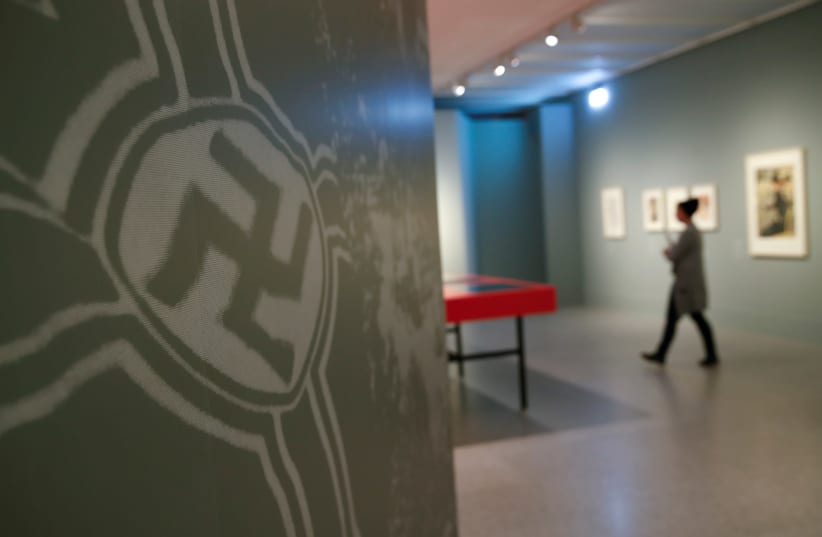ARTICLE AD BOX
"Germany is doing better justice to its historical responsibility through the reform of the Advisory Commission," Culture Minister Claudia Roth said.
By MICHAEL STARR JANUARY 13, 2025 19:16 Updated: JANUARY 13, 2025 19:19 'Gurlitt: Status Report - Nazi Art Theft and its Consequences' exhibition at the Bundeskunsthalle in Bonn, Germany, November 2, 2017.
(photo credit: REUTERS)
'Gurlitt: Status Report - Nazi Art Theft and its Consequences' exhibition at the Bundeskunsthalle in Bonn, Germany, November 2, 2017.
(photo credit: REUTERS)
The German Federal Cabinet approved a new reform for the Advisory Commission for Nazi-Looted Cultural Property, with the establishment of an arbitration court, Germany’s Culture Ministry announced on Wednesday.
Previously, Jewish claimants and current holders of allegedly looted art had to agree to mediation. Now, the ministry said, one side could unilaterally appeal the commission. Without any attempt to reach an agreement between the two sides, the commission will be able to involve itself.
Under the new reform, the Advisory Commission would reportedly also be able to commission contracts for research into art, which the ministry assured would ensure transparency.
“Germany is doing better justice to its historical responsibility through the reform of the Advisory Commission,” Culture Minister Claudia Roth said in a statement. “We are making the return of Nazi-looted property easier, particularly through the unilateral appeal, which will now also apply in Germany.
“In addition, we are creating more legal certainty and binding force and have agreed on a joint approach to the composition of the arbitration tribunal between the federal government, states, and municipalities, with representatives of the victims and their descendants, the Jewish Claims Conference, and the Central Council of Jews in Germany.”
The minister said the reforms would allow the country to better meet the demands of the 1998 Washington Conference Principles on Nazi-Confiscated Art, which called on nations to provide restitution and relevant administrative efforts to Holocaust victims and their descendants who had art looted from them.
Roth said the reforms, first announced in September, were developed in cooperation with the Claims Conference and Central Council.
The Council said in a Wednesday statement that the reform was a positive development, as “Joint arbitration is an important step on the way to a restitution law that is also binding for private institutions, as other European countries already have, and which remains the goal of the Jewish community in Germany.”
Open letter
The reform has been criticized by Nazi art restitution experts – according to Jewish Magazine Tachles and Jüdische Allgemeine – including Swiss lawyer Olaf S. Ossmann and Washington historian Willi Korte, who issued an open letter signed by attorneys, historians, and descendants of former art owners.
The experts warned that the reform would restrict certain groups of victims, such as art dealers, who sold works or cultural property under the pressure of persecution.=
Stay updated with the latest news!
Subscribe to The Jerusalem Post Newsletter
“Contrary to what Ms. Roth announced, the planned arbitration proceedings can only be invoked with the consent of the current owners,” the letter said. “The assertion that all states and municipalities would agree to an invocation of a future arbitration court is untrue. Over 10,000 municipalities with cultural institutions have not committed to the arbitration proceedings, and it is not foreseeable that they will do so in the future.”
According to a September German government policy paper, since 1998, more than 7,455 cultural assets have been restituted from German museums, plus another 24,470 books and archival material. The German government said the total number of restitution cases was higher because not all resolutions are public.

 18 hours ago
10
18 hours ago
10








 English (US) ·
English (US) ·